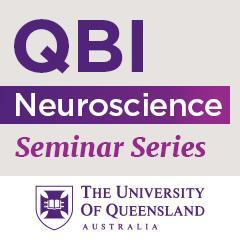Innovative genetic and chemical genetics approaches to understand and treat motor neuron diseases
Speaker
Dr Jean Giacomotto, Queensland Brain Institute, University of Queensland
Abstract
We have recently developed a novel transgenic knockdown approach that opens new avenues for manipulating gene function in zebrafish. This technology presents many advantages for modelling neurological disorders in this organism and motor neuron diseases (MNDs) in particular. Using this new approach, we have already reproduced, for the first time in zebrafish, the different forms of the MND spinal muscular atrophy (SMA). SMA is a motor neuron disease linked to smn1 loss-of-function (LOF). We have generated different transgenic lines, with phenotype severity and age of onset correlated to the level of smn1 inhibition, as observed in patients. Importantly, these stable lines are the first zebrafish models, to our knowledge, displaying progressive motor neuron degeneration; degenerative events that can be tracked and analysed in vivo in real time, due to the optical transparency of the zebrafish larvae. As such, the interest of these models goes beyond SMA and applies to all MNDs.
Taking advantage of these stable models, we are now using a combination of traditional genetic and chemical genetics approaches to both understand and find treatments against SMA. In synergy, we are also using our transgenic knockdown approach to study the individual and synergistic roles of genes associated with another MND, amyotrophic lateral sclerosis (ALS). We have already obtained promising results which reveal that partial-LOF of the ALS risk-gene tbk1 can trigger motor neuron degeneration. Interestingly, this phenotype is similar, albeit with milder phenotype, to degeneration observed in our SMA models. This result is particularly promising, as we believe that generating at least two distinct MND models will pave the way to the identification of mechanisms and treatments beneficial for all forms of MND, and potentially to neurodegeneration at large.
About Neuroscience Seminars
Neuroscience seminars at the QBI play a major role in the advancement of neuroscience in the Asia-Pacific region. The primary goal of these seminars is to promote excellence in neuroscience through the exchange of ideas, establishing new collaborations and augmenting partnerships already in place.
Seminars in the QBI Auditorium on Level 7 are held on Wednesdays at 12-1pm, which are sometimes simulcast on Zoom (with approval from the speaker). We also occassionally hold seminars from international speakers via Zoom. The days and times of these seminars will vary depending on the time zone of the speaker. Please see each seminar listed below for details.



